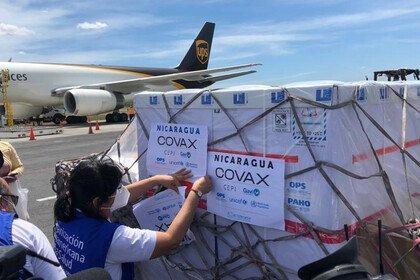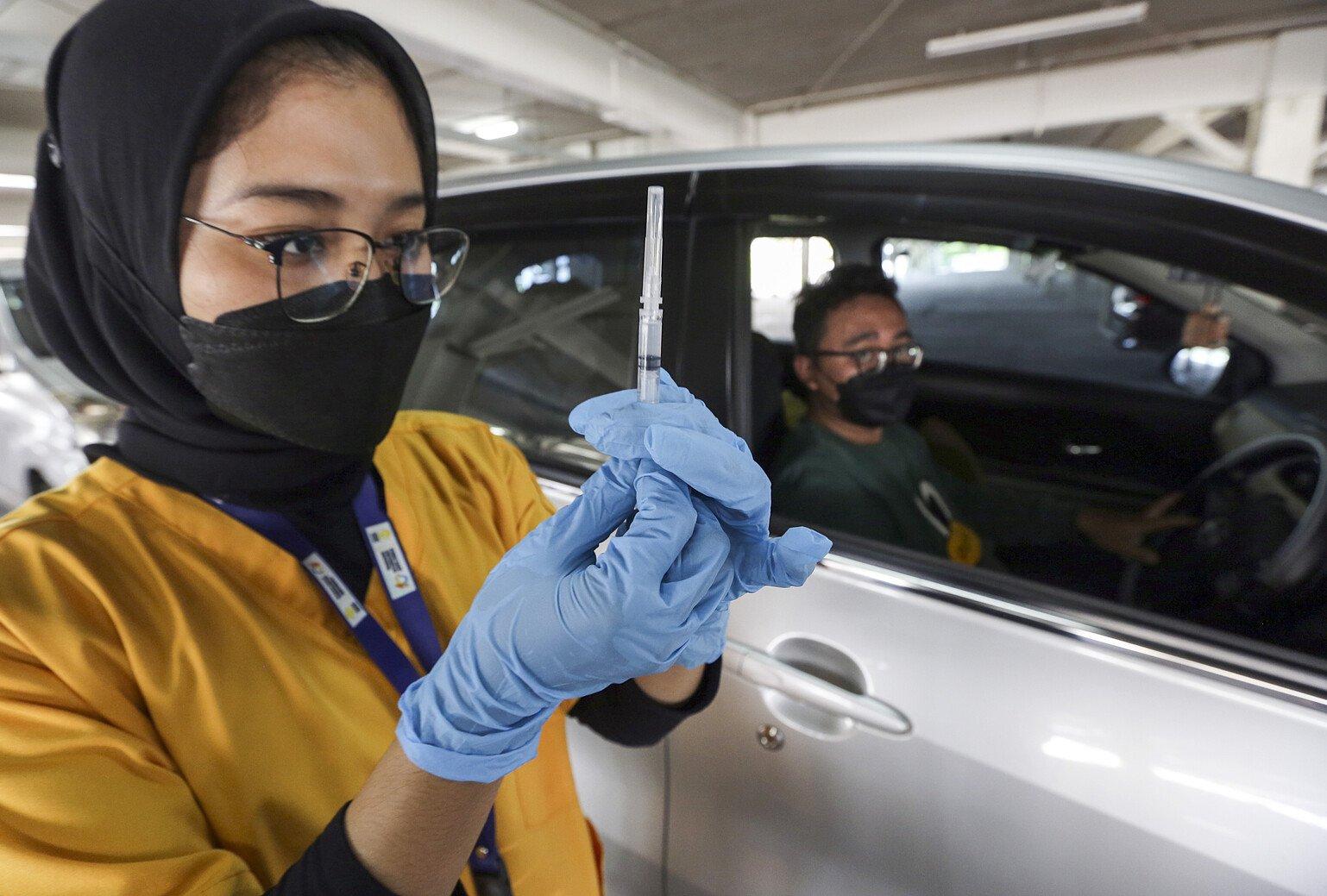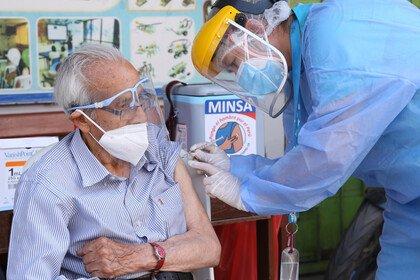
We can develop vaccines faster, but only if we work together from discovery to fair access
Science is the shining light of the Covid-19 pandemic. Without it we wouldn’t have a range of life-saving vaccines, treatments and tests. Now, efforts to prepare for future epidemics and pandemics must focus on keeping pace with infectious diseases through research and innovation.

Eko Siswono Toyudho/Anadolu Agency via Getty Images
In some ways, the timing of Covid-19 was fortunate.
Decades of research and innovation following SARS and MERS taught us about the fundamental biology of coronaviruses and how we might target them with vaccines.
Long-term investment in vaccine technology meant that multiple approaches were validated and could quickly enter clinical trials, including new mRNA vaccines.
And unprecedented political will unlocked funding and a more efficient approval process.
Together this delivered something incredible: safe and effective vaccines developed in under a year. And we were fortunate that this first generation of Covid-19 vaccines worked so well.
Yet this pandemic has still claimed more than six million lives around the world. And it continues to cause devastating impacts across society each day.
In some ways we were ready for a new disease before Covid-19. We had taken small steps on the path to being prepared, including establishing the Coalition for Epidemic Preparedness Innovations (CEPI) following the 2014 Ebola outbreak in West Africa. But those steps alone weren’t enough.
This week CEPI has been gathering support for an ambitious new goal of developing vaccines against emerging infectious diseases in 100 days. The $1.5 billion committed so far towards CEPI’s $3.5 billion target is a fantastic start, but it’s not enough to reach that mission.
Wellcome is a proud co-founder of CEPI and has committed a further $300 million with the Bill & Melinda Gates Foundation to support these efforts. And we think it’s time to define a new approach to infectious diseases where we prevent epidemics, rather than respond to them.
Why we need to prepare
The risk of another new infectious disease emerging remains high. Climate change, growing urbanisation, people and animals living closer together and a more interconnected world all provide more opportunities for new diseases to emerge and spread.
So when another ‘Disease X’ does come, we need to be ready. Just look at how quickly Covid-19 swept through countries. Without better preparation a new, possibly more dangerous disease could spread around the world.
This was reinforced with each new variant of Covid-19 too. And with Omicron, we were lucky that skilled scientists in South Africa were ready thanks to historic investment in virus surveillance. But we can’t keep relying on limited pockets of scientific excellence dotted around the world.
We need long-term investment in pandemic preparedness.
We’re funding research to better understand what causes and drives infectious diseases to escalate and the solutions to control their impact.
There are currently no open funding opportunities for Infectious Disease. Learn more about the funding we provide.
Science is a critical part of preparedness
Being prepared means seeing the whole picture. And for research, that requires focused effort on innovation across all stages of vaccine development, from initial discovery to rolling out vaccines for everyone who needs them.
We can’t predict the future, so we need to prepare for multiple threats. That means coordinated surveillance of viruses around the world with data shared openly across countries.
We need to be bold and invest in vaccine candidates against all the different known virus families that cause human disease. This will mean we’re ready to adapt these technologies for any emerging disease threat, much like how we adapted our knowledge of coronaviruses to tackle Covid-19.
And most crucial of all, we must improve speed of access to these innovations so that everyone who needs them can be protected.
The $3.5 billion that CEPI needs to achieve the 100 Day Mission sounds like a lot. But it’s a fraction of the cost of continued inaction on pandemic preparedness. Governments, the life sciences industry, philanthropies and civil society have taken an important step this week. We now need others to follow their lead.
What can we learn from Covid-19 vaccines?
We’ve found four factors that helped rapidly develop and approve safe and effective vaccines for SARS-CoV-2. These are the actions we think will build a more sustainable ecosystem for vaccine development:
- Commit sustained financial support for scientists and foundational science especially in pathogen biology, predictive model systems and vaccine platform technologies
- Establish strong clinical trial infrastructure in regions of infectious disease burden
- Support and strengthen global funding mechanisms to de-risk and advance development of vaccines for pandemic and endemic diseases
- Facilitate communication between regulatory authorities and other stakeholders by developing forums for open discussion.

